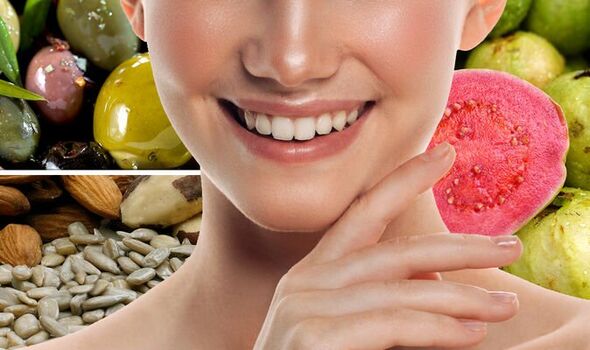Your skin is a reflection of your overall health, and what you eat can have a profound impact on its appearance and condition. While skincare products play a crucial role in maintaining healthy skin, the foundation of radiant and glowing skin lies in your diet. In this blog, we’ll explore the connection between diet and healthy, glowing skin, and how you can nourish your skin from within.
The Importance of a Balanced Diet
You’ve likely heard the phrase, “You are what you eat,” and when it comes to your skin, this saying holds true. A well-balanced diet provides essential nutrients that support the skin’s structure, function, and overall health. Here are some key nutrients and their roles in promoting healthy skin:
-
Hydration: The Foundation of Glowing Skin
Water is the most fundamental component of healthy skin. Staying adequately hydrated helps maintain skin’s moisture levels, which are essential for a radiant complexion. Aim to drink at least eight glasses of water a day to keep your skin well-hydrated.
-
Antioxidants: Protecting Your Skin from Damage
Antioxidants like vitamins C and E help combat free radicals, which can damage skin cells and accelerate aging. Foods rich in antioxidants, such as berries, citrus fruits, and nuts, can help protect your skin from premature aging and maintain its youthful appearance.
-
Omega-3 Fatty Acids: A Natural Moisturizer
Omega-3 fatty acids found in fatty fish (salmon, mackerel), walnuts, and flaxseeds are known for their anti-inflammatory properties. They help maintain the skin’s lipid barrier, preventing dryness and ensuring your skin stays soft and supple.
-
Collagen-Boosting Nutrients: Supporting Skin Elasticity
Collagen is the protein responsible for the skin’s structure and elasticity. Foods rich in vitamin C (like citrus fruits and broccoli) and amino acids (found in lean proteins) support collagen production, helping your skin remain firm and youthful.
-
Zinc: The Skin’s Healing Mineral
Zinc plays a crucial role in skin health by supporting wound healing and reducing inflammation. It’s found in foods like lean meats, nuts, and whole grains. Incorporating zinc-rich foods can help maintain clear and blemish-free skin.

-
Beta-Carotene: A Natural Skin Enhancer
Beta-carotene, found in foods like carrots, sweet potatoes, and spinach, is converted into vitamin A in the body. Vitamin A is essential for skin cell production and repair, making it an integral part of maintaining healthy, glowing skin.
-
Protein: Building Blocks of Skin Tissues
Protein is essential for the growth and repair of skin tissues. Incorporate lean protein sources like poultry, fish, tofu, and legumes into your diet to ensure your skin has the building blocks it needs to renew itself.
-
Avoid Excess Sugar and Processed Foods
High sugar intake and processed foods can lead to inflammation in the body, which can manifest as skin conditions like acne and premature aging. Reducing your consumption of these foods can help maintain clear and youthful skin.
-
Healthy Fats: Essential for Skin Health
Healthy fats, such as those found in avocados, nuts, and olive oil, help keep your skin moisturized and supple. Including these fats in your diet can contribute to a radiant complexion.
-
Probiotics: Supporting Gut-Skin Connection
A healthy gut is closely linked to healthy skin. Probiotics, found in yogurt, kefir, and fermented foods, promote gut health, which, in turn, can improve the clarity and appearance of your skin.
While skincare products play a valuable role in your daily routine, nourishing your skin from the inside out is equally essential for achieving healthy, glowing skin. A balanced diet rich in hydrating foods, antioxidants, omega-3 fatty acids, and collagen-boosting nutrients can help protect your skin, maintain its elasticity, and keep it looking youthful. Additionally, staying hydrated, avoiding excessive sugar, and supporting gut health with probiotics all contribute to a radiant complexion. By making mindful dietary choices, you can go beyond beauty and cultivate a healthy, glowing skin that reflects your overall well-being. Remember, what you put on your plate is as important as what you put on your skin.


